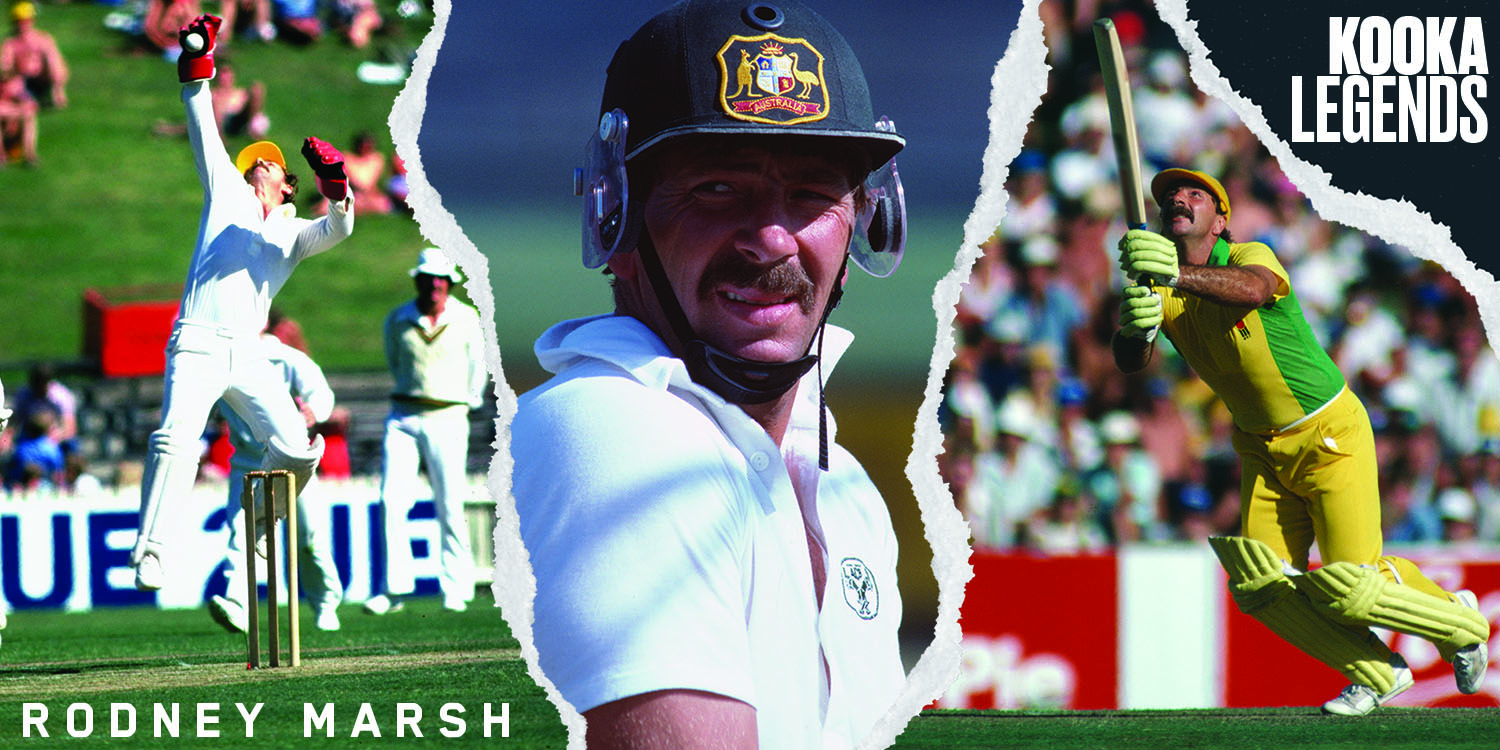

Rod Marsh
Born: November 4, 1947, Armadale, Perth, Western Australia
Major Teams: Australia, Western Australia
Batting Style: Left Hand Bat
Fielding Position: Wicketkeeper
Product: Pro Players Wicket Keeping
Profile
Thick-set in build and combative in approach, Rodney Marsh remains one of the most respected wicketkeepers to have ever played international cricket. During a Test career which bridged a period of 14 years until his retirement in 1983-84, he collected a then world-record tally of 355 dismissals; the combination of his concentration, athleticism and highly skilled glovework earning him enormous admiration among spectators and fellow players alike. Marsh enjoyed no easy passage to the top - he was forced to cool his heels at first-class level as a specialist batsman initially and then endured strident criticism when he was promoted to the national team ahead of the popular Brian Taber - but there was little argument about his credentials in either arena thereafter.
Although he did not cut the perfect athletic figure, Marsh was nimble-footed and his capacity to move acrobatically to intercept errant deliveries and catches was a constant feature. He was an invaluable player for both Western Australia and Australia, and the inextricability of his association with the fast bowler Dennis Lillee - the dismissal "caught Marsh bowled Lillee" was recorded 95 times in Tests - is one of the legends of cricket in their country. Apart from his wicketkeeping talents, he was also an excellent batsman in his own right, scoring three Test centuries, and his forceful strokeplay lay at the core of many stubborn Australian lower-order performances.
After retirement, Marsh enhanced his already glowing reputation with a fruitful stint as the head of the Australian Cricket Academy at Adelaide, overseeing players such as Ricky Ponting, Glenn McGrath and Brett Lee. Taking his talents abroad in 2002, Marsh was teased by his former team-mates for accepting the director's role of the old enemy's new National Academy. A year later one of the toughest men to play for Australia was appointed an England selector, and he has made useful contributions to the country's on-field renaissance. Stepping down from both roles in September 2005, he left having helped England regain the Ashes.
Source: ESPNcricinfo
